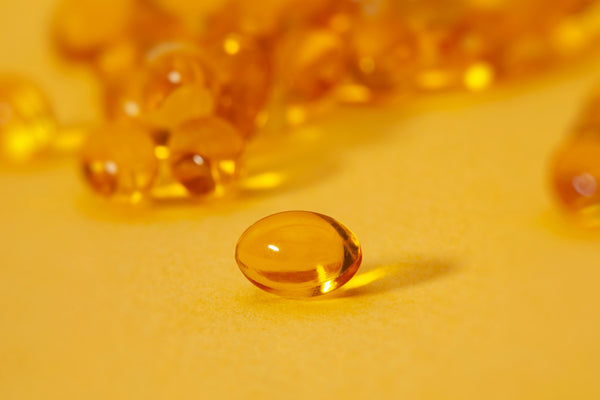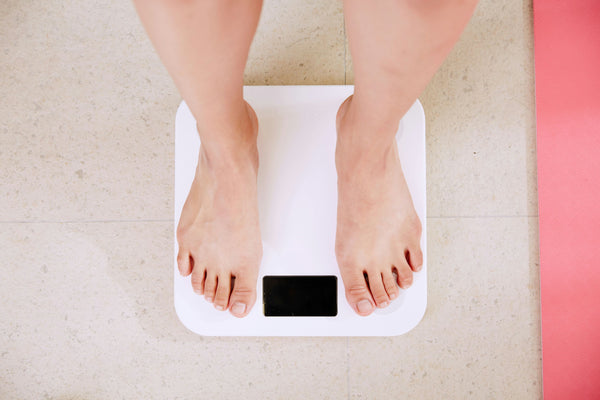In the quest for weight loss, particularly targeting stubborn belly fat, the role of vitamins often goes overlooked. However, research suggests that certain vitamins play crucial roles in metabolism regulation and may aid in shedding excess belly fat. In this comprehensive guide, we'll explore the role of vitamins for weight loss in metabolism and weight, identify the best vitamins to help with weight loss and boost metabolism, discuss whether vitamin supplementation alone is sufficient to help your body burn fat, and outline other important factors to consider in your journey to lose belly fat.
Role of Vitamins in Metabolism and Weight
Vitamins are essential nutrients that play diverse roles in the body, including metabolism regulation. Metabolism refers to the complex biochemical processes by which food is converted into energy to fuel various bodily functions. Certain vitamins act as coenzymes or cofactors in metabolic pathways, facilitating energy production and nutrient utilization. Additionally, vitamins contribute to the regulation of hormones and enzymes involved in metabolism, influencing factors such as appetite, fat storage, and energy expenditure.
Best Vitamins to Help with Weight Loss and Boost Metabolism

Numerous vitamins have been identified for their potential roles in supporting weight loss efforts and boosting metabolism. Let's delve into some of the key vitamins that may aid in shedding belly fat:
B Vitamins
The B-complex vitamins, included the below, are involved in energy metabolism and macronutrient breakdown. These vitamins help convert carbohydrates, fats, and proteins into usable energy, thereby supporting metabolic function and potentially aiding in weight management.
- B1 (thiamine)
- B2 (riboflavin)
- B3 (niacin)
- B5 (pantothenic acid)
- B6 (pyridoxine)
- B12 (cobalamin)
- B9 (folate)
In a cohort study of adults, higher intakes and serum levels of folate, vitamin B6, and vitamin B12 were associated with a lower risk of metabolic syndrome incidence. These findings suggest that ensuring adequate intake of folate, vitamin B6, and vitamin B12 may be beneficial for the prevention of metabolic syndrome.
Prebiotics and Probiotics
Prebiotics are non-digestible fibers that promote the growth of beneficial bacteria. These fiber contribute to gut health and may indirectly influence weight management. A healthy gut microbiome has been linked to improved metabolism, reduced inflammation, and enhanced fat metabolism, potentially leading to a healthier body weight.
On the other hand, probiotics are live beneficial bacteria that colonize the gut and support digestive health. While research on probiotics' direct effects on weight loss is ongoing, some studies suggest that certain strains of probiotics may help regulate appetite, reduce inflammation, and improve metabolic function, which could contribute to belly fat reduction.
In a clinical trial involving 45 obese patients, researchers investigated the effects of prebiotics and probiotics on weight loss, metabolic parameters, and psychological well-being. They found that all groups experienced significant weight loss and improvements in metabolic markers, with additional benefits in fat loss and muscle strength seen in the prebiotic and probiotic groups. These findings suggest that incorporating prebiotics and probiotics into lifestyle interventions may enhance the management of obesity and related metabolic and psychological conditions.
Vitamin D
Vitamin D is known as the "sunshine vitamin" because the body can synthesize it when exposed to sunlight. In addition to its role in bone health, vitamin D may influence weight regulation and body composition. Low vitamin D levels and vitamin d deficiencies have been associated with increased body fat accumulation, particularly visceral fat, making adequate vitamin D intake crucial for maintaining a healthy weight and reducing belly fat.
In a 6-week double-blind clinical trial with 50 overweight and obese women, vitamin D supplementation led to significant reductions in weight, waist circumference, and body mass index (BMI) compared to a placebo. While serum vitamin D levels increased notably in the intervention group, other factors such as cholesterol levels, blood sugar, insulin resistance, and blood pressure did not show significant changes. While further studies are needed to confirm this conclusion, it demonstrates that vitamin d supplementation can help support a healthy weight.
Vitamin C
Vitamin C is a powerful antioxidant crucial to immune function, skin health, and collagen production. Additionally, vitamin C may be involved in weight management by supporting fat oxidation during exercise, enhancing energy expenditure, and reducing oxidative stress, which can contribute to belly fat accumulation. A report suggests that vitamin C status is inversely related to body mass, with individuals having adequate vitamin C levels oxidizing 30% more fat during exercise compared to those with low levels. This suggests that vitamin C-depleted individuals may be more resistant to fat mass loss. Understanding the impact of vitamin C on metabolism sheds light on its potential role in weight loss strategies.
Are Vitamins Enough to Burn Belly Fat?

While vitamins play essential roles in metabolism and weight regulation, it's essential to recognize that taking vitamin supplementation alone is unlikely to lead to significant weight loss, especially targeted belly fat reduction. While certain vitamins may support metabolic function and contribute to overall health, they should be viewed as part of a well-rounded weight loss strategy that includes a balanced, nutrient-rich diet, regular physical activity, and lifestyle adjustments.
Supplements to Boost GLP-1
Supplementation with certain vitamins and natural products may have indirect benefits for losing belly fat by influencing hormonal pathways involved in appetite regulation and metabolism. One such hormone is GLP-1, or glucagon-like peptide-1, which plays a crucial role in controlling appetite and promoting satiety. GLP-1 also helps regulate blood sugar levels and may enhance insulin sensitivity. Some studies suggest that specific vitamins, such as vitamin D and vitamin B12, along with natural products like berberine, tea, curcumin, cinnamon, wheat, soybean, resveratrol, and gardenia, may help boost GLP-1 levels, thereby potentially aiding in weight loss efforts. However, further research is needed to fully understand the relationship between vitamin supplementation, GLP-1 levels, and belly fat reduction.
Other Important Factors to Lose Belly Fat
In addition to vitamin intake, several other factors play crucial roles in losing belly fat and achieving sustainable weight loss:
- Caloric Deficit: To lose weight, including belly fat, it's important to consume fewer calories than you expend through a combination of diet and exercise.
- Healthy Diet: Focus on consuming whole, nutrient-dense foods such as vegetables, fruits, lean proteins, whole grains, and healthy fats. Reduce intake of added sugars, processed foods, and high-calorie snacks.
- Regular Exercise: Incorporate both cardiovascular workouts and strength training to burn calories, gain muscle, and boost metabolism.
- Stress Management: Chronic stress can contribute to hormonal imbalances and increased belly fat accumulation. Adopt stress-reducing techniques such as mindfulness or yoga. Consider adaptogens including ashwagandha or l-theanine, to promote calm.
- Adequate Sleep: Lack of sleep or poor quality sleep can disrupt hunger hormones, increase appetite, and impair metabolism, contributing to weight gain and belly fat retention. Aim for 7-9 hours of quality sleep per night.
So, Can Vitamins Really Help With Reducing Belly Fat?
While certain vitamins may support metabolic function and contribute to overall health, they are not magic bullets for belly fat reduction or weight loss. Instead, vitamins should be viewed as part of a comprehensive approach to weight loss that includes a nutrient-rich diet, regular physical activity, and lifestyle modifications. By addressing multiple factors simultaneously and adopting healthy habits, you can achieve a healthy, sustainable weight and reduce belly fat effectively.